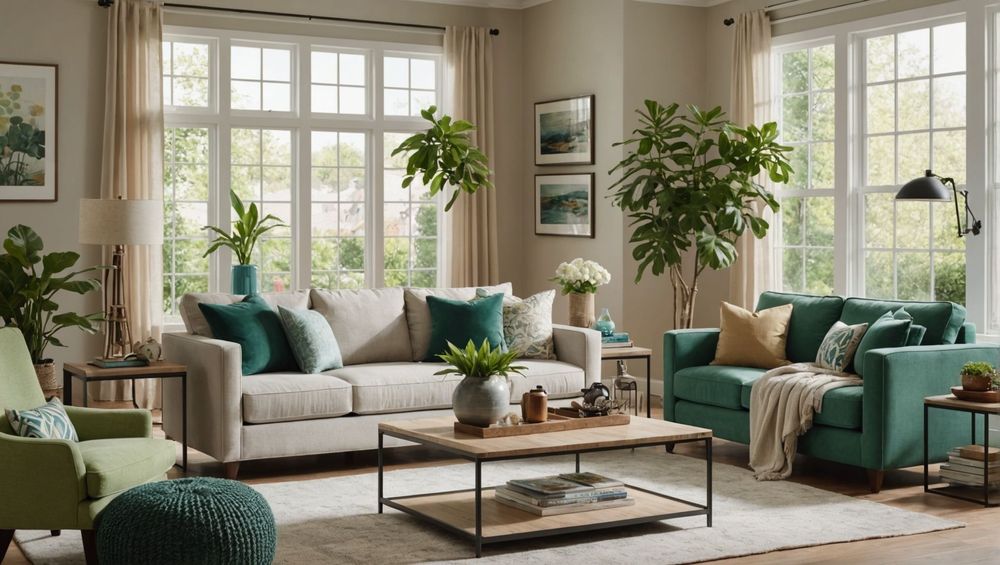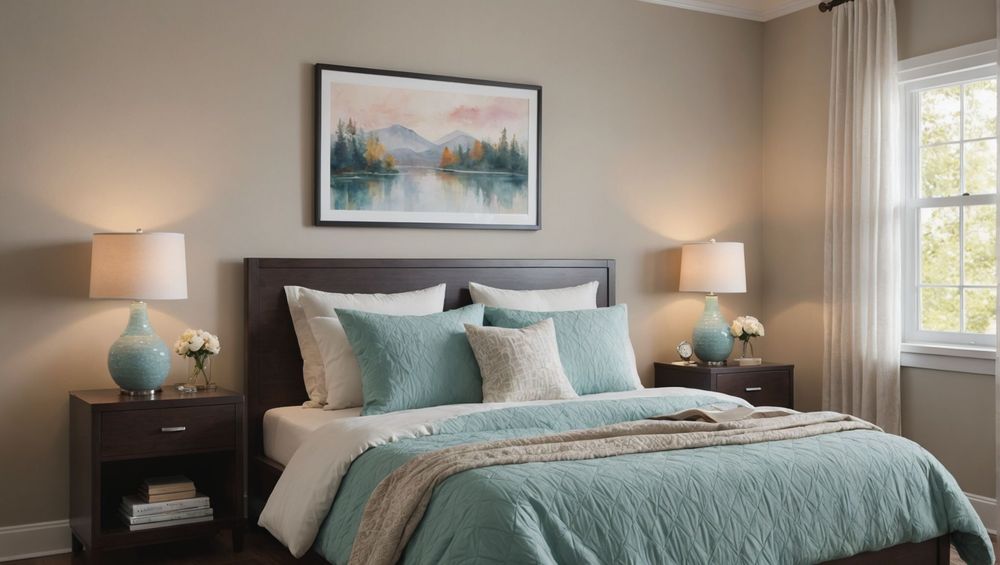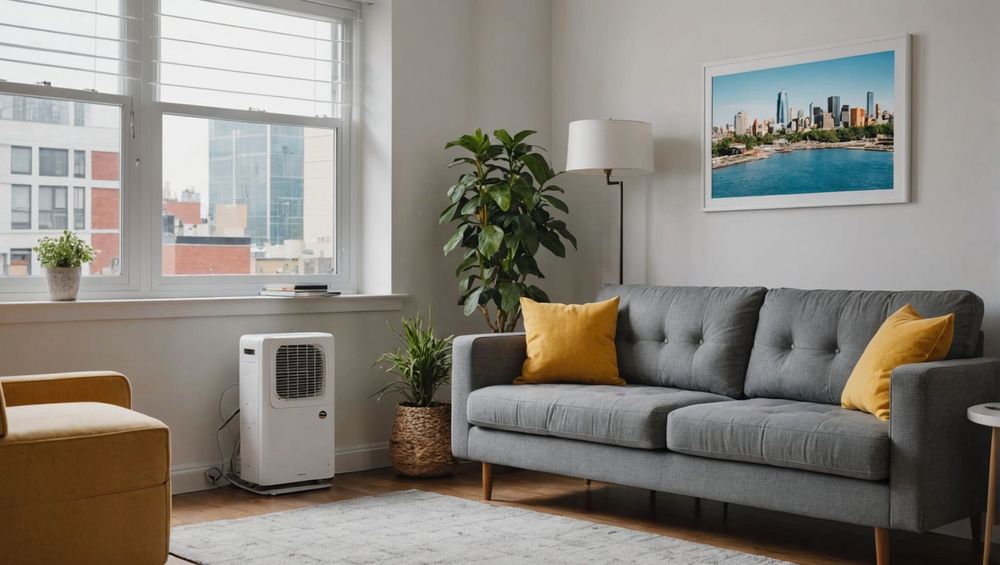Choosing the right type of air conditioning (AC) system for your home is crucial for comfort, efficiency, and cost-effectiveness. There are several varieties of ACs available, each designed to meet specific cooling needs and habitats. Selecting the right type of AC can significantly impact energy usage and your home’s overall atmosphere. In this article, we will explore the four main types of AC units for residential applications, helping you understand their features, advantages, and ideal usage scenarios.
1. Central Air Conditioning Systems

Central air conditioning systems are designed to cool your entire home through a series of ducts. They utilize a large compressor located outside, which sends cooled air through the ductwork to the various rooms of your house. One significant advantage of central AC is its ability to maintain consistent temperatures across large spaces, ensuring that every room is comfortable. They are particularly ideal for larger homes or multi-level houses because they can effectively manage high cooling demands.
However, central AC systems require a professional installation, which can add to the initial costs. They also consume more energy than smaller units, especially if the ducts are poorly insulated or have leaks. It is essential to ensure that your home is well-sealed to maximize efficiency. Many central AC systems come equipped with advanced features such as programmable thermostats, allowing you to optimize your cooling hours based on your schedule. This type of system is particularly popular in warmer climates where continuous cooling is essential.
2. Ductless Mini-Split Systems

Ductless mini-split systems are an excellent alternative for homes without existing ductwork. These systems consist of an outdoor compressor and one or more indoor air-handling units, providing flexibility in installation. Because they don’t require ducts, ductless mini-splits are often easier to install and less invasive than central systems. This type of AC allows for zoning, enabling you to cool specific areas of your home based on your preferences.
The energy efficiency of ductless mini-splits can be significant, often achieving higher Seasonal Energy Efficiency Ratings (SEER) compared to traditional systems. This advantage translates into lower utility bills and a smaller carbon footprint. Additionally, these systems often come with features such as remote controls and programmable settings, enhancing user convenience. Ductless mini-splits serve as an ideal solution for older homes, apartment settings, or specific rooms that require additional cooling without the extensive renovation needed for ductwork.
3. Window Air Conditioners

Window air conditioners are one of the most common types of AC units for smaller spaces. They are designed to fit into a window or through a wall, and they cool the room by drawing air in and circulating it while expelling heat outside. Window units are relatively affordable compared to other systems and are easy to install, making them ideal for renters or those on a budget. They are effective for cooling individual rooms or smaller areas, making it easy to target specific places in your home.
While window ACs are relatively inexpensive, they do have limitations. Their cooling capacity is generally lower than central or ductless systems, making them less suitable for very large spaces. Additionally, window units can obstruct views and may not be aesthetically pleasing. Maintenance involves regular cleaning of filters and coils to maximize efficiency. However, for single rooms or apartments, window AC units can provide a cost-effective solution for comfortable living.
4. Portable Air Conditioners
Portable air conditioners are versatile units that can be moved from room to room as needed. They are a great choice for homeowners looking for flexibility and convenience in cooling. Typically, these units come with a hose that expels hot air outside through a window, allowing the portable AC to cool the surrounding area. They are easy to set up and don’t require any permanent installation, making them ideal for users in temporary living situations or those who rent properties.
While portable ACs are convenient, they also have specific drawbacks. They are generally less efficient compared to window or central units and might require regular emptying of condensate water. Noise levels can vary, and they may need more frequent maintenance to keep them running efficiently. However, they often come with multiple functions like fan and dehumidification modes, adding to their utility. If your home’s layout or cooling needs change frequently, a portable air conditioner can be an excellent addition to your comfort arsenal.
Conclusion
Choosing the right type of air conditioning for your home is pivotal in ensuring a comfortable living environment. The decision should be based on various factors including space size, budget, and personal preferences. Central air conditioning systems are ideal for larger homes, ductless mini-splits offer flexibility in zoning, window air conditioners suit smaller spaces, and portable ACs provide mobility and convenience. Each system has its pros and cons, so it’s essential to evaluate your cooling needs before making a decision.
Часто задаваемые вопросы
1. What is the most efficient type of air conditioner?
The most efficient type of air conditioner varies by application, but ductless mini-split systems often have higher SEER ratings, making them more energy-efficient than many central or window units.
2. Can I use a portable AC in multiple rooms?
Yes, portable air conditioners are designed to be easy to move between rooms, provided you have the right setup to vent hot air outside.
3. How often should I clean my air conditioner?
Generally, it’s advisable to clean or replace filters every 1-3 months, depending on usage. Regular maintenance is crucial to ensure efficiency and longevity.
4. Are window air conditioners noisy?
Window air conditioners can produce varying noise levels, but newer models are designed to operate more quietly compared to older units.
5. What size air conditioner do I need for my room?
The size of the air conditioner you need depends on the room’s square footage. It is recommended to consult an HVAC professional or refer to a sizing guide for specific recommendations tailored to your space.


